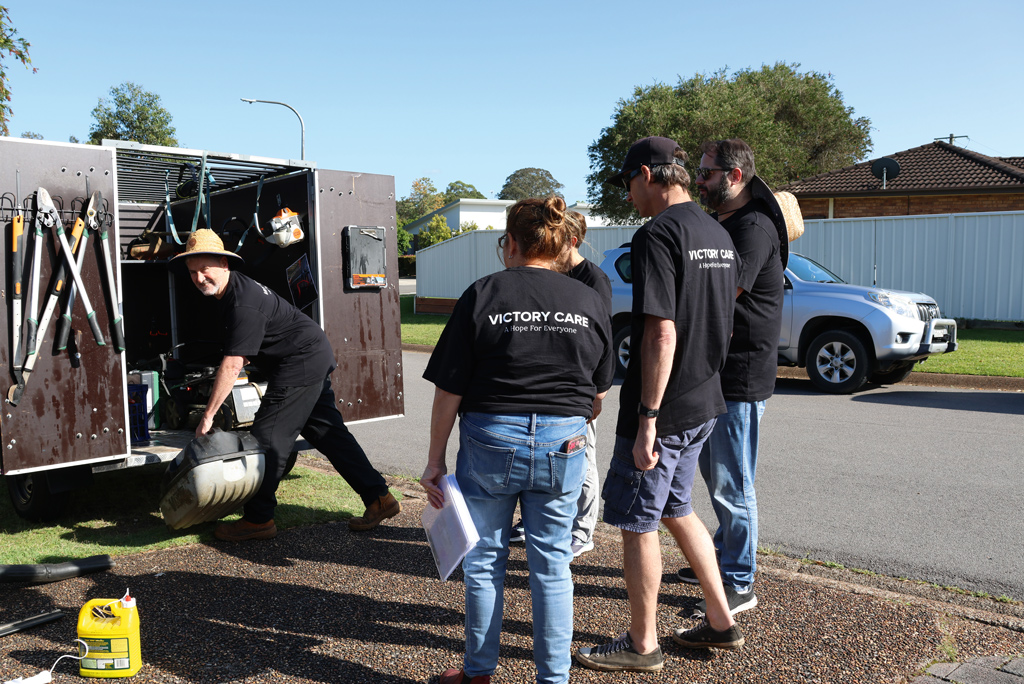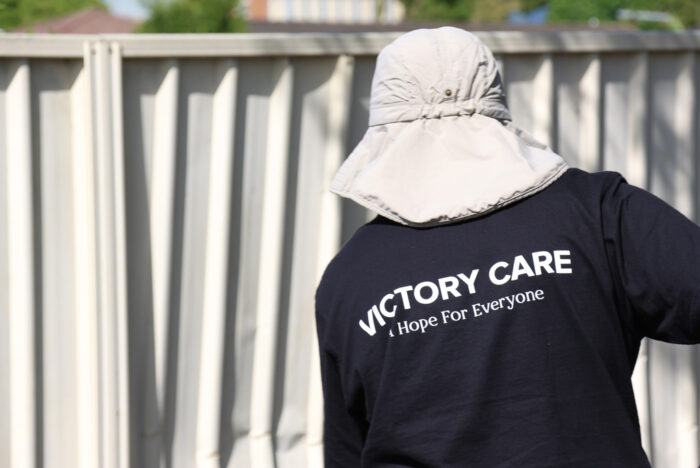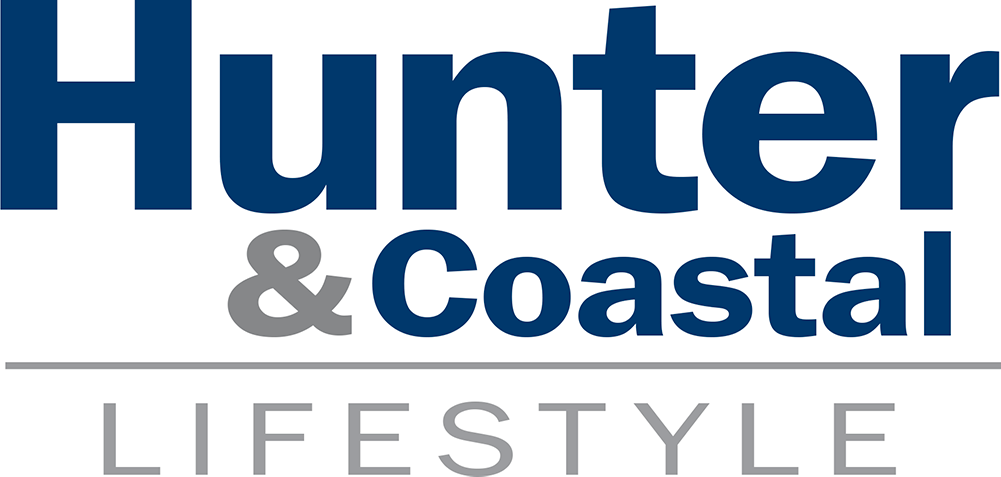
Mowing down barriers for DV victims
Everyday countless women and children escape domestic and family violence (DFV), only to be met with a whole new set of challenges.
Local non-for-profit organisation Victory Care is helping DFV victims regain their independence one lawn at a time with their Yard Maintenance Initiative (YMI).
The program offers free practical support and skill-building in relation to yard maintenance to women and children who have escaped from DFV over a 12-month period.
Victory Care Director Karen Thorpe said it is common for these victims to lose life-saving rental properties due to a lack of skill and time.
“They’ve often come out of a refuge into a space where they want to build an independent history and move towards independent living,” Ms Thorpe explained.
“But, no one packs their lawnmower to do that.”
Orchestrated by a group of trauma-trained volunteers, a variety of tasks are performed such as lawn mowing, gardening, landscaping, and general yard clean-up based on individual needs.
Not only do the services provide women with more housing security, it also allows children to stay active in their backyard and for tenants to access outside equipment including clotheslines and driveways.

Alongside general maintenance, recipients receive much-needed education to be empowered to take control of their living environment to become more self-sufficient and secure in their homes.
Launched in 2019, the initiative was created through an unexpected request from a local DFV agency.
The organisation reached out to Victory Care for some assistance for a client who was in urgent need of yard work which was putting her at risk of losing her rental property.
“From that point we realised there was a need that wasn’t really covered by other services,” said Ms Thorpe.
Now, more than 150 have been serviced under the YMI, with new funding from Newcastle Permanent Charitable Foundation set to be a much-needed boost.
The $55,000 grant provided will allow Victory Care to recruit additional volunteers and facilitators, allowing them to expand their clientele and join forces with other services for additional equipment supply.
While more positions are always available, Ms Thorpe encourages men within the community to do their part for those experiencing DFV.
“For the men it’s a great way that they can make a difference in what is a big space,” Ms Thorpe said.
“It also restores the confidence of the women when they see men being helpful and kind. They feel like it gives them a new perspective.”
Find more community stories in our Autumn edition of Hunter & Coastal Lifestyle Magazine or subscribe here.
Story Olivia Goeldner

